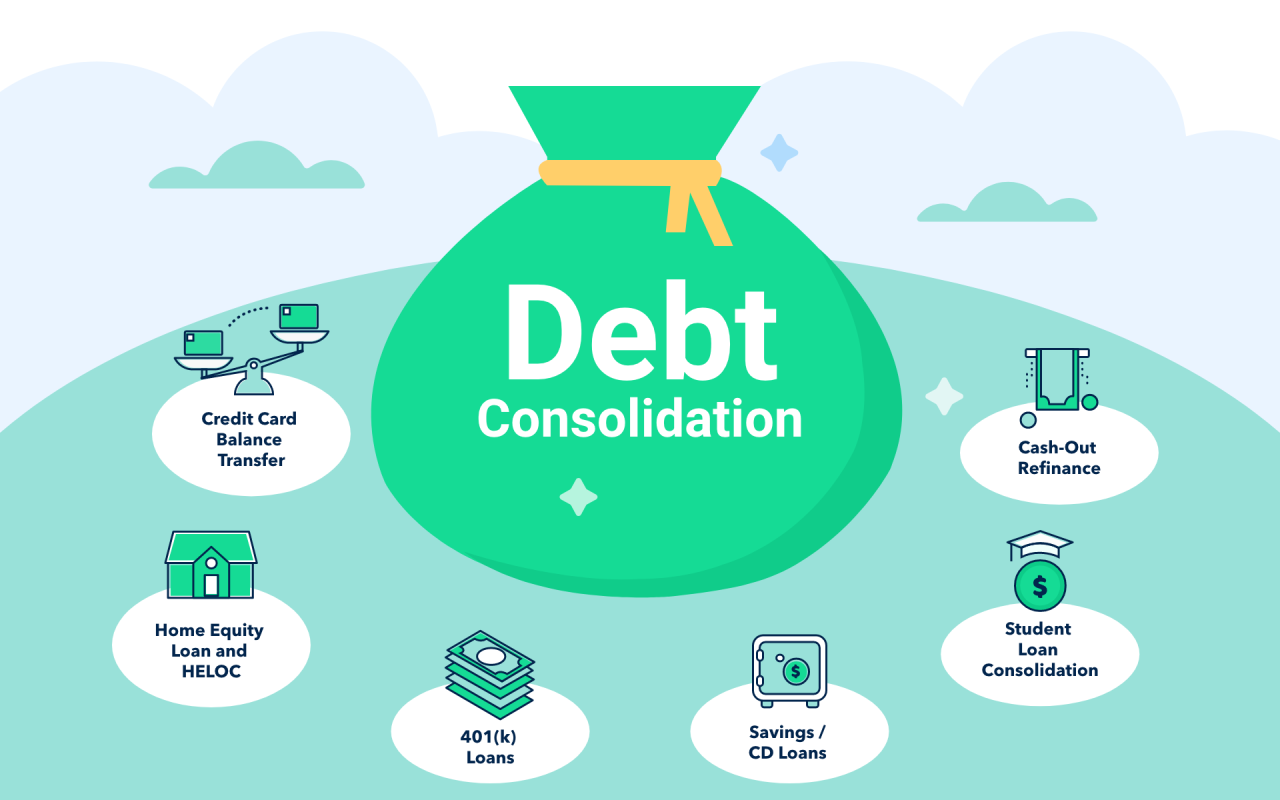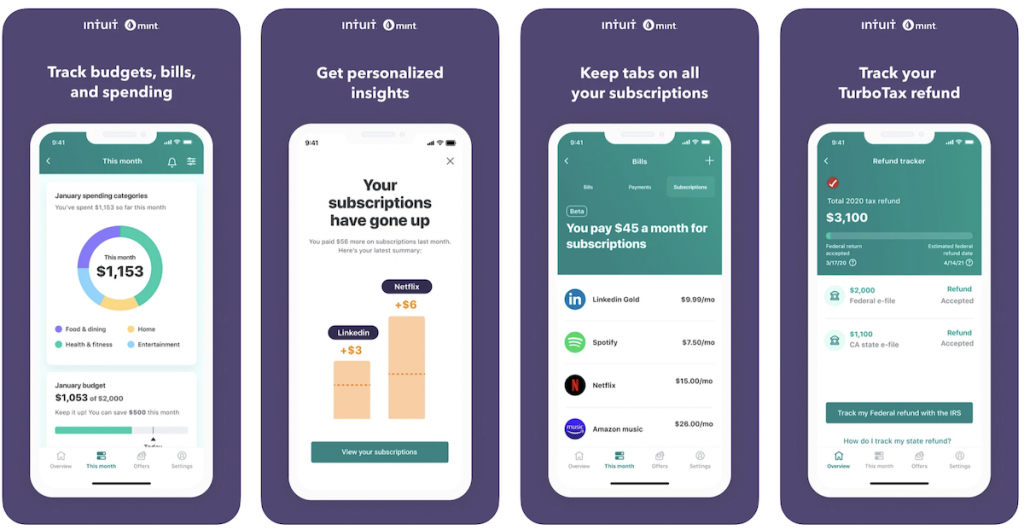Suarapublik – Debt consolidation personal finances can be a game-changer for individuals struggling with overwhelming debt. This strategy involves combining multiple debts into a single, more manageable loan, often with lower interest rates and monthly payments. By simplifying your debt obligations, you can gain control over your finances and work towards a brighter financial future.
Debt consolidation can be a powerful tool for financial recovery, but it’s essential to understand its intricacies and potential pitfalls. This guide will delve into the different types of debt consolidation methods, their pros and cons, and how to navigate the process effectively. We’ll also explore alternative strategies for managing debt and provide valuable insights to help you make informed decisions.
What is Debt Consolidation?

Debt consolidation is a strategy that combines multiple debts into a single loan with a lower interest rate. This can be a helpful tool for individuals struggling with high-interest debt, as it can simplify their repayment process and potentially save them money on interest charges.
Benefits of Debt Consolidation, Debt consolidation personal finances
Debt consolidation offers several benefits for individuals looking to improve their financial situation. Here are some of the key advantages:
- Lower Monthly Payments: By combining multiple debts into one, individuals can often secure a lower interest rate, resulting in lower monthly payments. This can free up cash flow and make it easier to manage their finances.
- Simplified Repayment: Consolidating debt into a single loan simplifies the repayment process, as individuals only need to track one payment instead of multiple. This can reduce confusion and stress associated with managing multiple debts.
- Improved Credit Score: Making on-time payments on a consolidated loan can help improve an individual’s credit score. This can lead to better interest rates on future loans and credit cards.
- Reduced Interest Charges: By securing a lower interest rate, individuals can significantly reduce the amount of interest they pay over the life of the loan. This can save them a substantial amount of money in the long run.
Real-World Examples of Debt Consolidation
Debt consolidation has helped many individuals improve their financial situations. Here are some real-world examples:
- Sarah, a young professional, had accumulated credit card debt totaling $10,000 with high interest rates. She consolidated her debt into a personal loan with a lower interest rate, reducing her monthly payments by $200. This freed up cash flow for her to save for a down payment on a house.
- John, a retired teacher, had several loans and credit card debt totaling $25,000. He consolidated his debt into a home equity loan with a lower interest rate, significantly reducing his monthly payments and allowing him to enjoy his retirement without financial stress.
Types of Debt Consolidation: Debt Consolidation Personal Finances

Debt consolidation is the process of combining multiple debts into a single loan with the aim of simplifying repayment and potentially lowering interest rates. This can be a beneficial strategy for individuals struggling with high-interest debt or managing multiple monthly payments. However, it’s essential to carefully consider the various types of debt consolidation methods and their implications before making a decision.
Balance Transfers
A balance transfer is a method of transferring outstanding balances from one credit card to another, often with a lower interest rate. This can be a useful option for individuals with high-interest credit card debt, allowing them to save money on interest charges.
Advantages of Balance Transfers
- Lower interest rates: Balance transfers typically offer lower interest rates compared to existing credit cards, reducing interest charges and accelerating debt repayment.
- Simplified repayment: Combining multiple credit card balances into one reduces the number of monthly payments, simplifying debt management.
- Introductory periods: Many balance transfer offers include introductory periods with 0% interest, allowing borrowers to focus on paying down the principal balance without accruing interest.
Disadvantages of Balance Transfers
- Balance transfer fees: Most balance transfer offers involve a fee, typically a percentage of the transferred balance. This fee can significantly impact the overall cost of debt consolidation.
- Limited time: Introductory periods with 0% interest are usually temporary, after which the standard interest rate applies. Borrowers need to pay down a significant portion of the balance before the promotional period ends to avoid high interest charges.
- Credit score impact: Applying for a new credit card can temporarily lower your credit score, as it involves a hard inquiry. This can affect your ability to qualify for other loans or credit lines.
Eligibility Criteria for Balance Transfers
To qualify for a balance transfer, borrowers typically need to meet the following criteria:
- Good credit score: Credit card issuers prefer borrowers with good credit history, as it indicates a lower risk of default.
- Available credit: The new credit card must have sufficient available credit to accommodate the transferred balance.
- Meeting income requirements: Some issuers may have income requirements to ensure borrowers can manage the monthly payments.
Debt Consolidation Loans
A debt consolidation loan is a personal loan that combines multiple debts into a single loan with a fixed interest rate and a set repayment period. This option can be beneficial for individuals with various types of debt, including credit cards, medical bills, and personal loans.
Advantages of Debt Consolidation Loans
- Lower interest rates: Debt consolidation loans often offer lower interest rates compared to existing debts, especially high-interest credit cards. This can significantly reduce interest charges and shorten the repayment period.
- Predictable payments: A debt consolidation loan provides a fixed monthly payment amount, making budgeting and debt management more predictable.
- Simplified repayment: Combining multiple debts into one simplifies repayment, as borrowers only need to track a single loan and make one monthly payment.
Disadvantages of Debt Consolidation Loans
- Loan origination fees: Debt consolidation loans typically involve origination fees, which are a percentage of the loan amount. This fee can add to the overall cost of consolidation.
- Longer repayment terms: While lower interest rates can be beneficial, debt consolidation loans often have longer repayment terms compared to existing debts. This can result in paying more interest over the life of the loan.
- Credit score impact: Applying for a debt consolidation loan involves a hard inquiry, which can temporarily lower your credit score.
Eligibility Criteria for Debt Consolidation Loans
To qualify for a debt consolidation loan, borrowers typically need to meet the following criteria:
- Good credit score: Lenders prefer borrowers with good credit history, as it indicates a lower risk of default.
- Sufficient income: Lenders assess borrowers’ income to ensure they can afford the monthly loan payments.
- Debt-to-income ratio: Lenders consider the borrower’s debt-to-income ratio, which is the percentage of their income used to pay debts. A lower ratio indicates a better ability to manage debt.
Debt Management Plans
A debt management plan (DMP) is a program offered by a credit counseling agency that helps individuals negotiate lower interest rates and monthly payments with creditors. This option can be beneficial for individuals with high-interest debt who are struggling to make payments.
Advantages of Debt Management Plans
- Lower interest rates: Credit counseling agencies can negotiate lower interest rates with creditors, reducing interest charges and accelerating debt repayment.
- Reduced monthly payments: DMPs can help reduce monthly payments by consolidating debts into one monthly payment. This can make debt management more manageable.
- Financial education: Credit counseling agencies provide financial education and guidance, helping individuals develop healthy financial habits and avoid future debt.
Disadvantages of Debt Management Plans
- Fees: Credit counseling agencies charge fees for their services, which can vary depending on the agency and the program.
- Negative impact on credit score: While DMPs can help improve your credit score over time, they can initially have a negative impact as accounts are placed in a “payment plan” status.
- Limited availability: DMPs are not available for all types of debt, and some creditors may not participate in the program.
Eligibility Criteria for Debt Management Plans
To qualify for a debt management plan, borrowers typically need to meet the following criteria:
- Financial hardship: Credit counseling agencies assess borrowers’ financial situation to determine if they qualify for a DMP. This includes evaluating income, expenses, and debt levels.
- Willingness to participate: Borrowers must be willing to follow the terms of the DMP, including making monthly payments and adhering to the agency’s guidelines.
- Meeting income requirements: Some agencies may have income requirements to ensure borrowers can manage the monthly payments.
Array
Debt consolidation is a strategy that involves combining multiple debts into a single loan with a lower interest rate, making it easier to manage your repayments. It can be a helpful tool for individuals struggling with high-interest debt, but it’s essential to understand how it works before taking the plunge.
Step-by-Step Process
The process of debt consolidation typically involves several steps:
- Assess your debt: The first step is to assess your current debt situation. Make a list of all your debts, including the amount owed, interest rates, and minimum monthly payments. This will give you a clear picture of your overall debt burden.
- Determine your debt-to-income ratio (DTI): Your DTI is a crucial factor in debt consolidation. It’s calculated by dividing your monthly debt payments by your gross monthly income. Lenders typically prefer a DTI below 43%.
- Check your credit score: A good credit score is essential for securing favorable terms on a debt consolidation loan. If your credit score is low, you may need to improve it before applying for a loan.
- Explore debt consolidation options: There are several options available for debt consolidation, including personal loans, balance transfer credit cards, and debt management plans.
- Compare loan offers: Once you’ve identified potential debt consolidation options, compare the interest rates, fees, and repayment terms. Choose the option that offers the most favorable terms and fits your financial situation.
- Negotiate with creditors: If you’re considering a debt consolidation loan, it’s essential to negotiate with your creditors. They may be willing to lower your interest rates or waive some fees if you consolidate your debt.
- Close your old accounts: Once you’ve secured a debt consolidation loan, close your old accounts. This will help prevent you from accumulating more debt and ensure you’re making payments on your new loan only.
Credit Scores and Debt-to-Income Ratios
Your credit score and debt-to-income ratio play a significant role in debt consolidation. Lenders use these factors to assess your creditworthiness and determine the interest rate and loan terms they offer. A higher credit score and lower DTI generally lead to more favorable loan terms.
- Credit Score: A good credit score (generally above 670) can significantly impact your debt consolidation options. A higher score often translates to lower interest rates and more favorable loan terms.
- Debt-to-Income Ratio: A lower DTI is generally preferred by lenders. A high DTI indicates that you’re already heavily burdened with debt, which can make lenders hesitant to provide you with a loan.
Negotiating with Creditors
Negotiating with creditors can be a challenging but potentially rewarding aspect of debt consolidation. Here are some tips for negotiating with your creditors:
- Be prepared: Before you negotiate, gather all the necessary information, including your debt balances, interest rates, and payment history.
- Be polite and professional: Maintain a respectful tone and avoid being aggressive or demanding.
- Explain your situation: Explain your financial situation to your creditors and why you’re seeking debt consolidation.
- Be willing to compromise: Be prepared to offer something in return for a lower interest rate or other concessions.
- Get everything in writing: Once you reach an agreement, get it in writing to ensure both parties understand the terms.
Taking control of your debt through consolidation can be a liberating experience, but it requires careful planning and execution. By understanding the different methods, weighing the pros and cons, and seeking professional guidance when needed, you can make informed decisions that pave the way for a more secure and prosperous financial future. Remember, knowledge is power, and armed with the right information, you can navigate the path to financial freedom with confidence.
Commonly Asked Questions
What are the common types of debt consolidation?
The most common types of debt consolidation include balance transfers, debt consolidation loans, and debt management plans. Each method has its own set of benefits and drawbacks, so it’s important to carefully consider your options.
Is debt consolidation right for everyone?
Debt consolidation is not a one-size-fits-all solution. It’s best suited for individuals with good credit scores and manageable debt levels. If you have a history of financial mismanagement or are struggling to make minimum payments, other strategies may be more appropriate.
How can I find a reputable debt consolidation company?
When choosing a debt consolidation company, it’s crucial to do your research and select a reputable provider. Look for companies with positive customer reviews, transparent fees, and a proven track record. You can also consult with a financial advisor or credit counselor for recommendations.
















Komentar